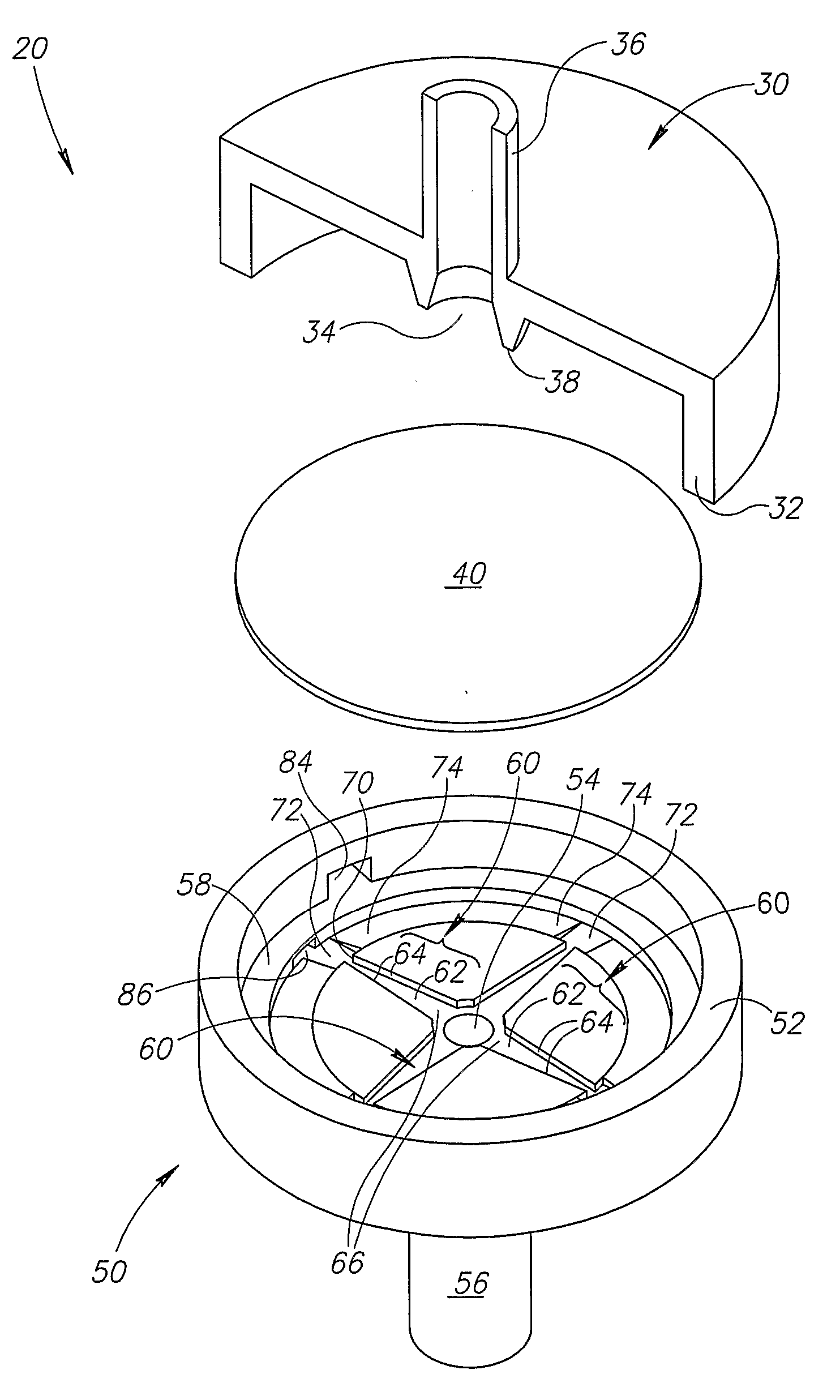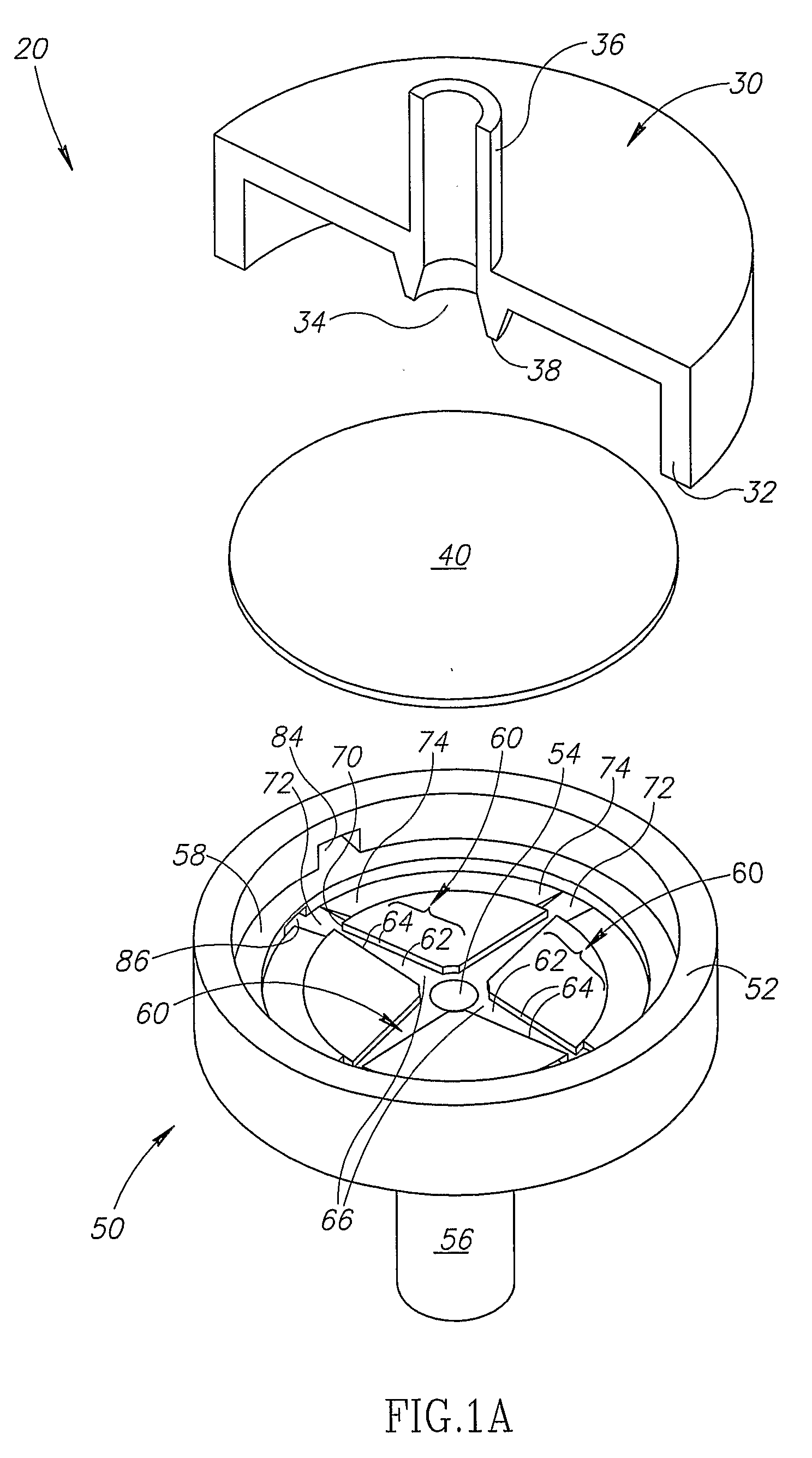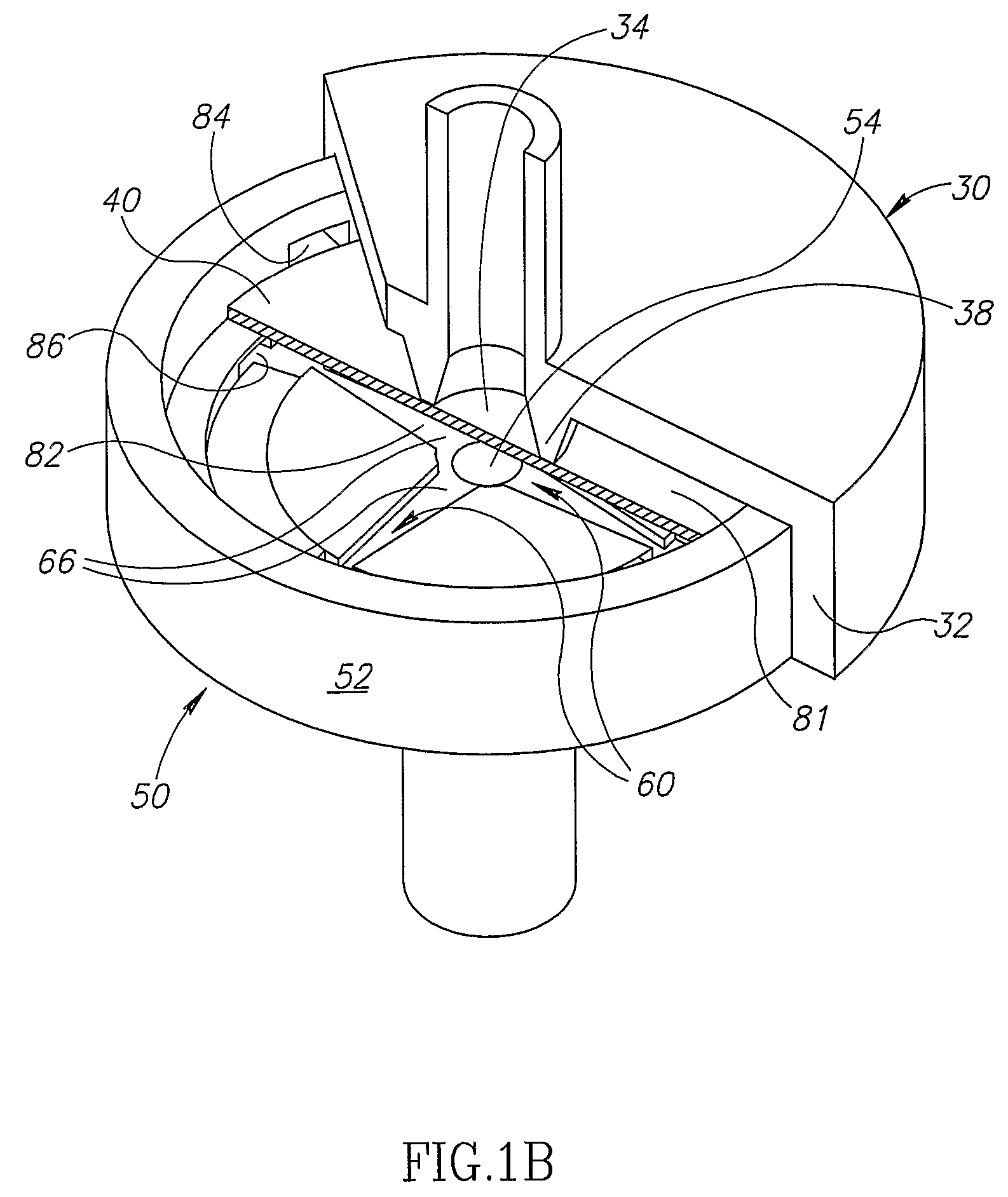Fluid Flow Control Regulator
a flow control and regulator technology, applied in the field of regulators, can solve the problems of increasing the inlet pressure of water, reducing the diaphragm distortion rate, and affecting the operation of valves, and improving the regulation of fluid flow, so as to improve the configuration of at least one open-faced flow control channel, improve the effect of fluid flow regulation, and improve the effect of fluid flow
- Summary
- Abstract
- Description
- Claims
- Application Information
AI Technical Summary
Benefits of technology
Problems solved by technology
Method used
Image
Examples
Embodiment Construction
[0030]FIG. 1A schematically shows an exploded and partially cutaway view of a flow control regulator 20, in accordance with an embodiment of the invention. FIG. 1B schematically shows an assembled, partially cutaway, view of flow control regulator 20 shown in FIG. 1A. For convenience of presentation it is assumed that regulator 20 is used to control flow of water.
[0031]Regulator 20 optionally comprises an inlet cowling 30, a diaphragm 40 and an outlet cowling 50. Optionally, inlet cowling 30 is injection molded from a suitable plastic as an integral unit using any of various methods known in the art. Optionally, outlet cowling 50 is similarly formed by injection molding as a single integral unit.
[0032]Inlet cowling 30 optionally has a rim 32 and is formed with a regulator inlet port 34 and an input coupling tube 36 having any shape suitable for coupling the regulator to a source of water. An optionally annular diaphragm scaffold 38 is formed on an inside surface of inlet cowling 30 ...
PUM
 Login to View More
Login to View More Abstract
Description
Claims
Application Information
 Login to View More
Login to View More - R&D
- Intellectual Property
- Life Sciences
- Materials
- Tech Scout
- Unparalleled Data Quality
- Higher Quality Content
- 60% Fewer Hallucinations
Browse by: Latest US Patents, China's latest patents, Technical Efficacy Thesaurus, Application Domain, Technology Topic, Popular Technical Reports.
© 2025 PatSnap. All rights reserved.Legal|Privacy policy|Modern Slavery Act Transparency Statement|Sitemap|About US| Contact US: help@patsnap.com



